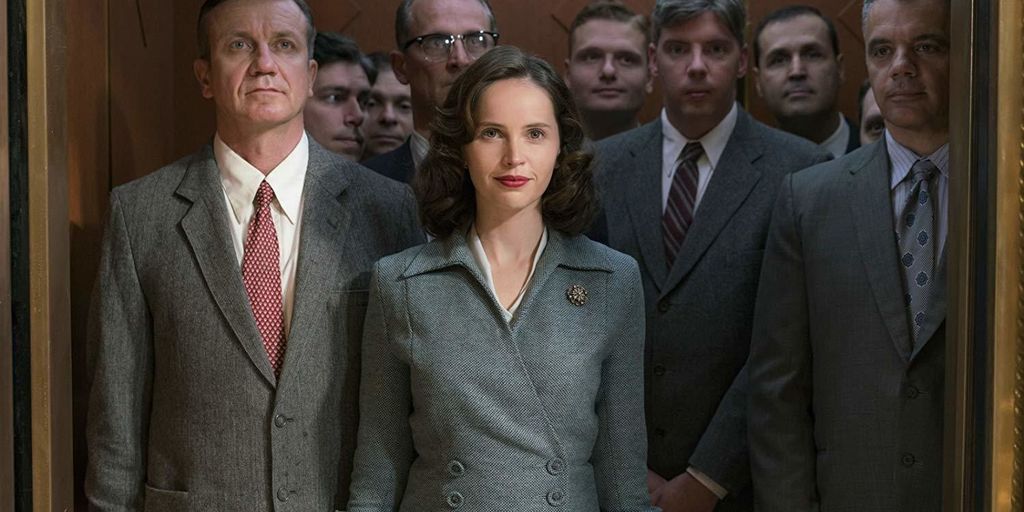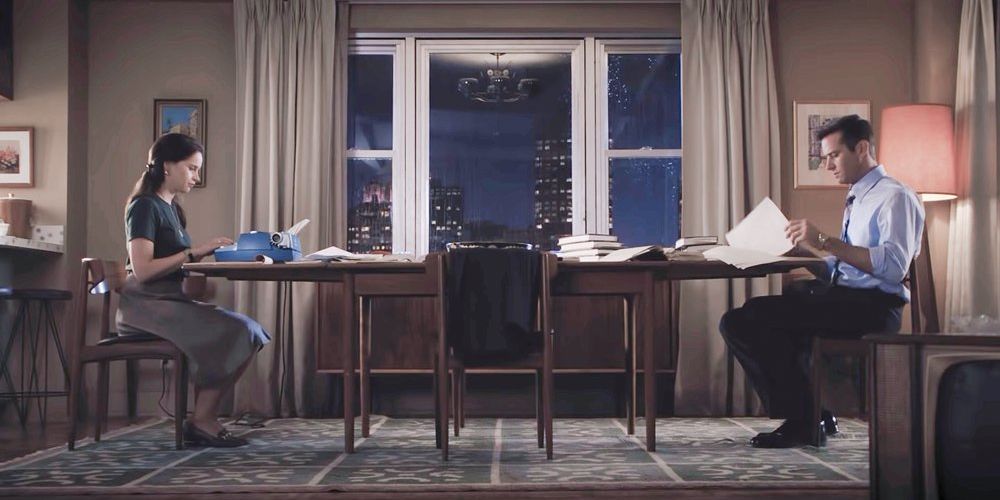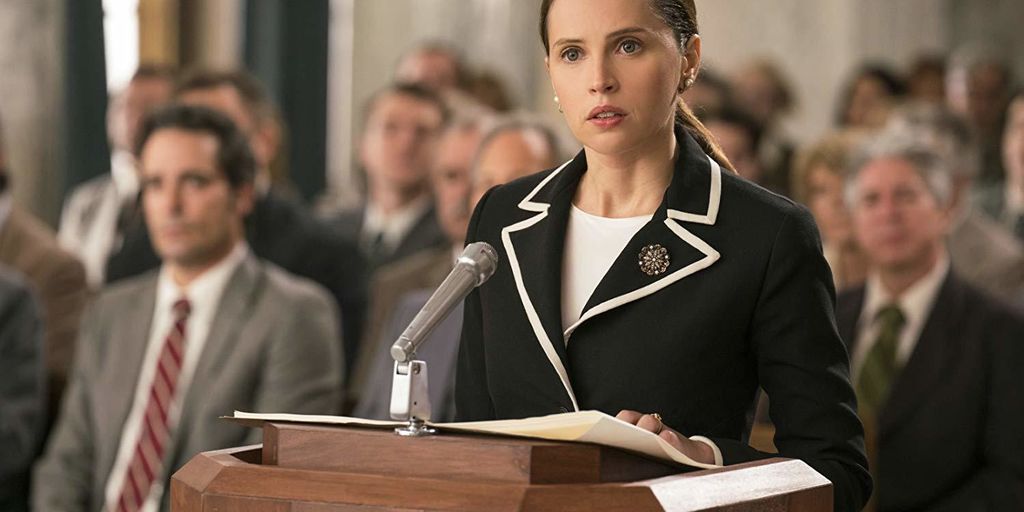We're a society that values brevity.
"SMS" for texting.
"OK" instead of okay.
"Queen B" instead of Beyonce.
Paradoxically, when we love something; we shorten it.
So it's not a stretch to understand how the pop-culture alliteration "RBG" came to represent the incredible feminist and civil rights crusader Ruth Bader Ginsberg.
She's the liberal icon-turned unexpected cult figure who has punched through the patriarchy with determination, perseverance and intellect.
At 86, Ginsberg continues to serve as a judge on the US Supreme Court bench.
She's so iconic, I once advocated that my trivia team dressed up as a table of RBGs for Halloween.
Given her enormous popularity and renown, the rapper-like "RBG" seems a fitting moniker.

On the Basis of Sex is not the first movie to be made about her.
In 2016, the documentary RBG chronicled her extraordinary life and legal career to critical acclaim. I haven't seen it, but it's on my watch list.
This biopic, directed by Mimi Leder, opens to the marching pomp of Ten Thousand Men of Harvard where a sea of privileged, besuited men stroll effortlessly through the hallowed doors of Harvard Law School, smiling with the contentment of power and entitlement.
Among them is the fierce but diminutive figure of Ginsberg, played by Felicity Jones, who stands out in a striking blue 1950s dress and is one of just nine women accepted to study at the prestigious university that year.
I'm happy that it's so difficult, in 2019, to imagine a world where women were considered so overtly inferior to their male counterparts.
Leder's opening scene brilliantly captures its unchallenged injustice.

The nine women are invited to a dinner with the Head of Harvard Law, Erwin Griswold (played by Sam Waterston) and his wife.
Each is asked to stand at the dining table and explain why they came to study law.
It's an excruciating and patronising scene.
Distressed and outraged, Ginsberg goes home to her second-year Harvard Law student husband, Martin Ginsburg (played by the honey-voiced Armie Hammer) and their 14-month old daughter, in a state of outrage.
Ginsberg's real-life husband, who died in 2010, was a leading US tax law expert who was famously celebrated for being ahead of his time in sharing in household duties and cooking the bulk of the family's meals.
While the young couple is devoted to their studies, Martin suddenly becomes ill.
The diagnosis is grave: Testicular cancer.
While he endures life-saving treatment, Ruth attends her own classes as well as her husband's so he may keep his place in the course.
He survives and Ruth is a brilliant student.

After graduating, Martin is head-hunted for a job across the country.
Ruth transfers her final year of law to Columbia University when Griswold won't support her cause to remain a Harvard graduate from afar.
Despite graduating at the top of her class, Ruth is unable to find work in a New York firm.
Eventually, and unhappily, Ruth takes an academic law job teaching students at Princeton.
Frustrated by her side-lined career and facing criticism from her teenage daughter, Ruth identifies a discriminatory tax law that refuses a carer's payment to Charles Moritz (Chris Mulkey), an unmarried man looking after his mother.
She uses the case as a platform from which to challenge the fairness of legislation governing men and women in US society to devastating effect, with the help of Martin and sleazy Mel Wulf (Justin Theroux) of the American Civil Liberties Union.
The final court scene is powerful and Ruth's rousing call to action is wonderfully realised.
This is a lovely and moving film that knows what it is: A beautiful tribute to a woman who’s story is, happily, still very much unfinished.